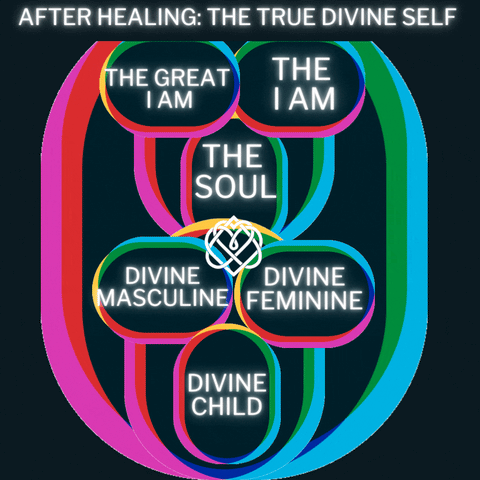Dive into The Steve Experience: A Cosmic Playground of Universal Truths!
Unlocking Personal Growth and Enlightenment Through the Pursuit of Honesty and Integrity

Hey there, cosmic explorers! Welcome to The Steve Experience, where we're not just talking about universal truths—we're living them, baby! Before you jet off, hit that subscribe button to get all the latest cosmic goodies delivered straight to your inbox.
Now, let's get into it. There are some cosmic constants that are just woven into the fabric of existence. Seriously, they're the spiritual DNA of the universe!
Here's the cosmic rundown:
- The I AM Consciousness: It's the universal Wi-Fi, and guess what? You've got the password!
- Christ (Consciousness): It's not just for Sundays; it's a 24/7 vibe.
- The Soul: You've got one, I've got one, we've all got one! (Unless you traded it for something really, really cool, but let's not go there.)
- Justice: It's not just a concept; it's a universal law, like gravity but for karma.
- Truth: It's the North Star of the cosmos, always guiding us home.
- Compassion, Love, Forgiveness: These aren't just feelings; they're universal potentials waiting to be unlocked.
- Redemption and Heaven On Earth: They're not just for fairy tales; they're universal possibilities.
- Patience and Integrity: Think of them as cosmic virtues with universal potential.
Now, you might be thinking, "Hey, Steve, some of these are just potentials, right?" And you'd be spot-on! I've cherry-picked the potential ones because, well, I like to stir the cosmic pot a bit.
Here's the kicker: these universal truths aren't just spectator sports. You've got to jump in and play the game to really get it. The moment you go from being a cosmic observer to a universal participant, your perspective shifts, and the magic happens.
Let's dig deeper into these truths from two fascinating angles:
- The Disciple: How do these universal truths guide us on our spiritual journey?
- The I AM (Higher Self Consciousness): How do these truths resonate with our higher selves?
So, are you ready to dive into the cosmic playground and explore these universal truths?
Disciple of Truth I AM
To be a disciple of truth means to have a deep commitment to seeking and upholding truth in all aspects of life. It involves valuing honesty, transparency, and accuracy in all one's dealings and interactions with others, as well as a commitment to constantly seeking and refining one's understanding of reality.
Being a disciple of truth means that one recognizes that truth is not always easy to uncover or accept and that it may sometimes require challenging one's own assumptions and biases. It also means recognizing that truth is often subjective and can be influenced by cultural, societal, and personal factors, and therefore, being willing to listen to and learn from diverse perspectives.
In practice, being a disciple of truth may involve seeking out reliable sources of information, fact-checking claims before accepting them as true, being willing to admit when one is wrong or uncertain, and speaking truthfully even when it may be uncomfortable or unpopular.
Unmistakably, being a disciple of truth is about striving to live a life of integrity and authenticity, and contributing to a more just and equitable society by upholding the value of truth.

Disciple of Integrity I AM
To be a disciple of integrity means to be committed to upholding a strong set of moral and ethical principles in all aspects of one's life. It involves acting in accordance with one's values and principles, even when it may be difficult or inconvenient to do so.
Being a disciple of integrity means being honest with oneself and with others, taking responsibility for one's actions, and treating others with respect and dignity. It involves holding oneself to a high standard of behaviour and being willing to admit when one falls short and then taking steps to make amends.
In practice, being a disciple of integrity may involve making difficult choices that prioritize ethical considerations over personal gain or comfort, standing up for what is right even in the face of opposition, and refusing to engage in behaviours that compromise one's values or principles.
In all honesty, being a disciple of integrity is about striving to live a life of consistency, honesty, and responsibility, and contributing to a more just and equitable society by upholding the value of integrity. It requires a strong sense of self-awareness, commitment, and courage, and can serve as a powerful force for positive change in the world.

Disciple of Love I AM
To be a disciple of love means to prioritize love and compassion in all aspects of one's life. It involves recognizing the inherent value and worth of every person and seeking to act in ways that promote the well-being and flourishing of all.
Being a disciple of love means being kind and empathetic, showing concern for others, and seeking to build connections and relationships based on mutual respect and care. It involves embracing diversity and celebrating differences, and working to create a more inclusive and equitable society.
In practice, being a disciple of love may involve acts of kindness and generosity, listening to and supporting others, and advocating for social justice and equality. It may also involve letting go of resentments and judgments and approaching others with an open heart and mind.
In essence, being a disciple of love is about recognizing and celebrating the interconnectedness of all beings, and seeking to promote greater love, compassion, and understanding in the world. It requires a commitment to personal growth and self-awareness, as well as a willingness to engage with others with an open heart and a spirit of generosity.

Disciple of Justice I AM
To be a disciple of justice means to be committed to promoting fairness, equality, and the protection of human rights in all aspects of society. It involves recognizing and addressing systemic inequalities and injustices, and working to ensure that all people have equal access to opportunities and resources.
When it comes to justice for children, it means prioritizing the well-being and rights of children in all policies and decisions. It involves advocating for policies and practices that promote the health, safety, and development of children, as well as protecting them from harm and exploitation.
Being a disciple of justice means being willing to speak out against discrimination and inequality, and working to create a more inclusive and equitable society for all. It involves standing up for those who are marginalized or vulnerable, and actively working to dismantle systemic injustices and barriers.
In practice, being a disciple of justice may involve advocating for policies and programs that support children's health, education, and well-being, as well as working to address systemic issues such as poverty, discrimination, and lack of access to resources. It may also involve educating oneself and others about the issues facing children and working collaboratively with others to create meaningful change.
Fundamentally, being a disciple of justice is about recognizing and valuing the inherent worth and dignity of all individuals, and working to create a society that upholds the principles of fairness, equality, and respect for human rights. For children, this means creating a world where all children have the opportunity to thrive, and where their rights and well-being are protected and promoted.

Disciple of Forgiveness I AM
To be a disciple of forgiveness means to prioritize forgiveness and compassion in all aspects of one's life. It involves recognizing the humanity in oneself and others as well as seeking to understand and heal the wounds that arise from conflict and hurt.
Being a disciple of forgiveness means being willing to let go of anger, bitterness, and resentment, and seeking to find common ground and understanding with others. It involves recognizing the potential for growth and transformation in oneself and others as well as seeking to build bridges of empathy and understanding.
In practice, being a disciple of forgiveness may involve seeking to understand the perspectives and experiences of others, acknowledging and taking responsibility for one's own mistakes and shortcomings, and seeking to make amends and repair damaged relationships.
When it comes down to it, being a disciple of forgiveness is about recognizing the interconnectedness of all beings, and seeking to promote greater healing, understanding, and compassion in the world. It requires a commitment to self-reflection and growth, as well as a willingness to engage with others with an open heart and a spirit of generosity. It can lead to greater personal and societal transformation and ultimately contribute to a more peaceful and harmonious world.

Disciple of Freedom I AM
To be a disciple of freedom means to prioritize the protection and promotion of individual liberty and autonomy in all aspects of society. It involves recognizing and valuing the inherent worth and dignity of each person, and seeking to create a world where people have the freedom to live according to their own beliefs and values.
Being a disciple of freedom means advocating for policies and practices that protect civil liberties and human rights, and working to dismantle systems of oppression and inequality that restrict individual freedom. It involves standing up for those whose freedoms are being threatened or violated, and working to create a more just and equitable society for all.
In practice, being a disciple of freedom may involve advocating for policies that protect freedom of speech, religion, and expression, as well as advocating for the rights of marginalized groups who may be at risk of discrimination or persecution. It may also involve engaging in activism or community organizing to promote greater individual autonomy and self-determination.
Being a disciple of freedom is about recognizing and upholding the fundamental value of individual liberty and autonomy, and working to create a world where people have the freedom to live according to their own values and beliefs. It requires a commitment to social justice, and a willingness to stand up for the rights and freedoms of all people.

Disciple of Heaven On Earth I AM
To be a disciple of heaven on earth means to work towards creating a world that embodies the qualities of peace, love, harmony, and well-being. It involves recognizing that while perfection may be unattainable, we can strive to create a world that is as close to heaven as possible by working to alleviate suffering and promote greater flourishing for all beings.
Being a disciple of heaven on earth means working to create a world that is grounded in spiritual values such as compassion, empathy, and kindness. It involves recognizing the interconnectedness of all beings and seeking to create a world that promotes the flourishing of all life.
In practice, being a disciple of heaven on earth may involve engaging in acts of kindness and service, practising meditation or other spiritual disciplines, and working to promote greater awareness and understanding of the interconnectedness of all beings. It may also involve advocating for policies and practices that promote social and environmental justice and working to address systemic issues such as poverty, inequality, and environmental degradation.
Ultimately, being a disciple of heaven on earth is about recognizing that we are all interconnected, and seeking to create a world that reflects this reality by promoting the well-being and flourishing of all beings. It requires a commitment to personal and social transformation, and a willingness to work towards creating a world that embodies the qualities of peace, love, and harmony.

Disciple of Compassion I AM
To be a disciple of compassion means to prioritize the well-being and suffering of all beings, and to approach the world with a deep sense of empathy and understanding. It involves recognizing the inherent worth and dignity of each person and seeking to alleviate suffering and promote greater well-being for all.
Being a disciple of compassion means cultivating a deep sense of empathy and understanding for others, and seeking to act in ways that promote their well-being and happiness. It involves recognizing that suffering is a universal human experience and seeking to alleviate this suffering in oneself and others.
In practice, being a disciple of compassion may involve engaging in acts of service and kindness, practising meditation or other spiritual disciplines, and working to promote greater awareness and understanding of the interconnectedness of all beings. It may also involve advocating for policies and practices that promote social and environmental justice and working to address systemic issues such as poverty, inequality, and environmental degradation.
Being a disciple of compassion is about recognizing that we are all interconnected, and seeking to create a world that reflects this reality by promoting the well-being and flourishing of all beings. It requires a commitment to personal and social transformation, and a willingness to work towards creating a world that embodies the qualities of empathy, understanding, and kindness.

Disciple of Redemption I AM
To be a disciple of redemption means to believe in the possibility of transformation and healing, both for oneself and for others. It involves recognizing the mistakes and shortcomings of the past, but also recognizing the potential for growth and transformation in the present and future.
Being a disciple of redemption means seeking to create a world where people have the opportunity to heal and grow, and where past mistakes and shortcomings do not define one's identity or limit one's potential. It involves recognizing that redemption is a process and that it requires a commitment to self-reflection, growth, and change.
In practice, being a disciple of redemption may involve engaging in acts of service and kindness, practising forgiveness and compassion, and working to promote greater awareness and understanding of the interconnectedness of all beings. It may also involve advocating for policies and practices that promote second chances and rehabilitation for those who have made mistakes or faced adversity.

Disciple of Patience I AM
Being a disciple of redemption is about recognizing the potential for growth and transformation in oneself and others, and working to create a world that values the inherent worth and dignity of all beings. It requires a commitment to personal and social transformation, and a willingness to work towards creating a world that embodies the qualities of hope, healing, and transformation.
To be a disciple of patience means to cultivate the ability to remain calm and composed in the face of adversity or delay, and to approach life with a sense of equanimity and resilience. It involves recognizing that some things in life take time, and that progress and growth may happen slowly or incrementally.
Being a disciple of patience means seeking to cultivate a sense of inner calm and tranquillity, even in the midst of difficult or challenging circumstances. It involves recognizing that impatience and frustration can often lead to negative outcomes and that developing the ability to wait and persevere can lead to greater success and well-being in the long run.
In practice, being a disciple of patience may involve engaging in mindfulness practices, cultivating a sense of gratitude and contentment, and working to develop the ability to remain calm and composed in difficult or stressful situations. It may also involve recognizing and accepting one's limitations and being willing to let go of the desire for immediate results or gratification.
Essentially, being a disciple of patience is about recognizing the value of waiting and persevering in the pursuit of one's goals and aspirations. It requires a commitment to personal growth and development, and a willingness to approach life with a sense of equanimity and resilience.

Disciple of Wisdom I AM
To be a disciple of wisdom means to seek knowledge, insight, and understanding about oneself, others, and the world around us. It involves recognizing the limitations of one's own knowledge and experience as well as seeking to learn from a variety of sources and perspectives.
Being a disciple of wisdom means valuing knowledge and understanding, and recognizing the importance of critical thinking and reflection in one's personal and spiritual growth. It involves recognizing the interconnectedness of all beings and seeking to understand the deeper patterns and dynamics that shape our world.
In practice, being a disciple of wisdom may involve engaging in practices such as meditation, study, and reflection, as well as seeking out the wisdom and insights of others. It may also involve cultivating the ability to think critically and objectively about one's own beliefs and assumptions and being open to new ideas and perspectives.
Ultimately, being a disciple of wisdom is about seeking knowledge, insight, and understanding in the pursuit of personal growth, spiritual development, and a deeper understanding of the world around us. It requires a commitment to lifelong learning and growth, and a willingness to approach life with an open mind and a spirit of curiosity and inquiry.

Disciple of Self-Care I AM
To be a disciple of self-care means to prioritize one's own physical, emotional, and spiritual well-being. It involves recognizing the importance of taking care of oneself in order to be able to better serve others and contribute positively to the world.
Being a disciple of self-care means valuing oneself and one's own needs, and recognizing the importance of self-compassion and self-kindness. It involves developing practices and habits that promote health and well-being, such as exercise, healthy eating, rest, and relaxation.
In practice, being a disciple of self-care may involve engaging in activities such as meditation, yoga, or other forms of exercise, as well as taking time for oneself to rest and recharge. It may also involve setting boundaries and saying no to activities or commitments that do not serve one's own needs or values.
Fundamentally, being a disciple of self-care is about recognizing that one's own well-being is essential to living a fulfilling and meaningful life. It requires a commitment to taking care of oneself, both physically and emotionally, and a willingness to prioritize one's own needs in order to better serve others and contribute positively to the world.

The I AM
The spiritual essence within you, often referred to as the I AM or the Great I AM, may feel distant in your current state. Yet, it's always there, patiently waiting for your reconnection. It's your guiding light, your divine blueprint. As you navigate your healing, you'll feel this spiritual dimension becoming more tangible, and more accessible, gradually infusing your life with purpose and meaning.


